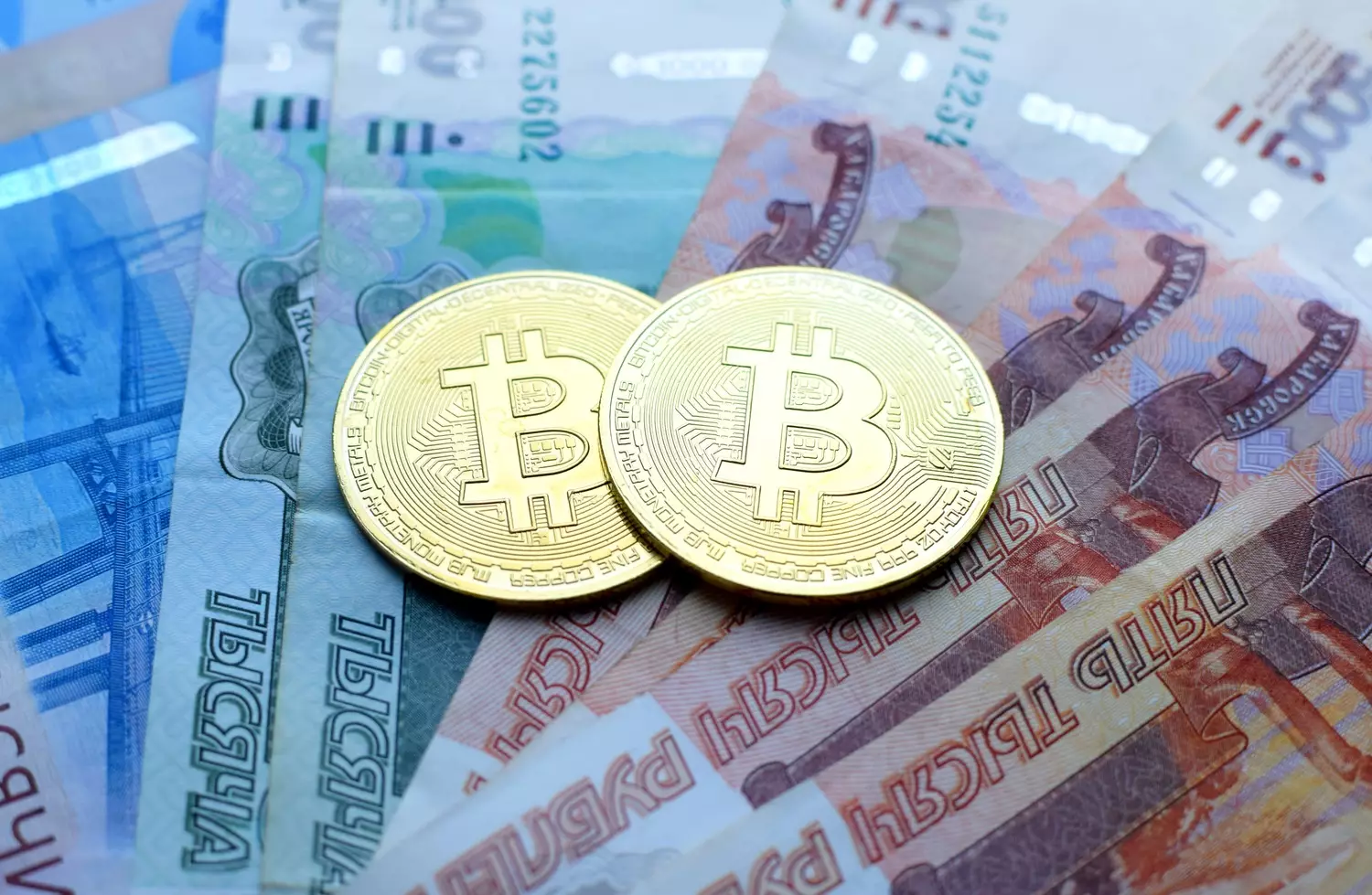Russia’s trade ministry recently announced the development of a groundbreaking tool that has the potential to assist crypto miners in evading Western sanctions. Lawmakers explained in a DumaTV post on the RuTube video-sharing platform that the Ministry of Industry and Trade had successfully created a tool specifically designed for conducting industrial mining activities. This tool aims to facilitate cross-border payments for Russian businesses operating in the cryptocurrency sector.
In an interview featured in the video, Anton Tkachev, the First Deputy Chairman of the State Duma’s Committee on Information Policy, Information Technologies, and Communications, shed some light on this revolutionary “tool.” However, the details provided were quite limited. Tkachev did, however, suggest that Russian firms, including miners, may soon seek to increase their utilization of cryptocurrencies. The reason behind this interest lies in the potential for crypto to help Russian businesses successfully circumvent the Western sanctions imposed when trading abroad. Tkachev emphasized that transactions conducted using cryptocurrency would be much harder for Western adversaries to trace and monitor.
Despite the apparent advantages, it is important to note that within Russia, the circulation of cryptocurrency is still a matter of concern for lawmakers. Tkachev made it clear that MPs are aiming to prohibit the circulation of cryptocurrency within the country’s borders. Consequently, the future of cryptocurrency in Russia is expected to be limited and conditional. Despite this, Tkachev expressed hope that cryptocurrencies could serve as a “wonderful” payment tool for transactions between different nations.
When it comes to international payments between nations, Russian firms may potentially expand their use of cryptocurrencies as a viable alternative to fiat currencies. This perspective aligns with the Russian government’s strategic goal of moving away from reliance on the US dollar and seeking digital fiat and crypto as suitable alternatives. Lawmakers have asserted that the digital ruble, along with other central bank digital currencies (CBDCs), could have significant cross-border trade applications.
With regards to regulation within the cryptocurrency market, Moscow aims to establish a specialized banking organization under the supervision of the Central Bank. This organization’s primary responsibility would be to regulate crypto deals. It is worth mentioning that the Central Bank and its long-serving Governor Elvira Nabiullina have historically opposed the adoption of cryptocurrencies in Russia. However, recent developments indicate a softening stance. Nabiullina intends to ensure that crypto miners sell their coins abroad on overseas trading platforms, which has encountered resistance from law enforcement agencies who argue that it may open the door to money laundering.
Cryptocurrency mining has experienced significant growth in Russia, with prominent industrial mining firms such as BitRiver flourishing in recent years. Nonetheless, there are ongoing discussions among lawmakers regarding the future of mining in the country. While senior Russian politicians propose banning private citizens from mining crypto, they are more inclined to allow industrial miners to continue their operations. The rationale behind this stance is to create a regulatory framework that legalizes mining exclusively for registered businesses or legal entities.
The current sentiment within federal government bodies and the State Duma indicates a likelihood of mining being legalized solely for industrial mining entities. Individuals would be barred from engaging in crypto mining activities. However, the implementation of relevant legislation has been a protracted process, with the Central Bank resisting more progressive approaches advocated by entities such as the Ministry of Finance. Russian miners have been actively advocating for the legalization of their sector and have even expressed their willingness to pay taxes on their earnings.
Russia’s trade ministry’s development of a tool to assist crypto miners in evading Western sanctions marks a significant stride in the country’s cryptocurrency landscape. While it presents opportunities for Russian businesses to overcome trade restrictions, there remain challenges and uncertainties surrounding the domestic circulation of cryptocurrencies. The government’s intentions to regulate the cryptocurrency market and monitor cross-border transactions through a specialized banking organization indicate a growing acceptance of cryptocurrencies becoming an integral part of international trade. As discussions on mining legislation continue, the realization of an inclusive regulatory framework could further propel the growth of the crypto sector in Russia.


















